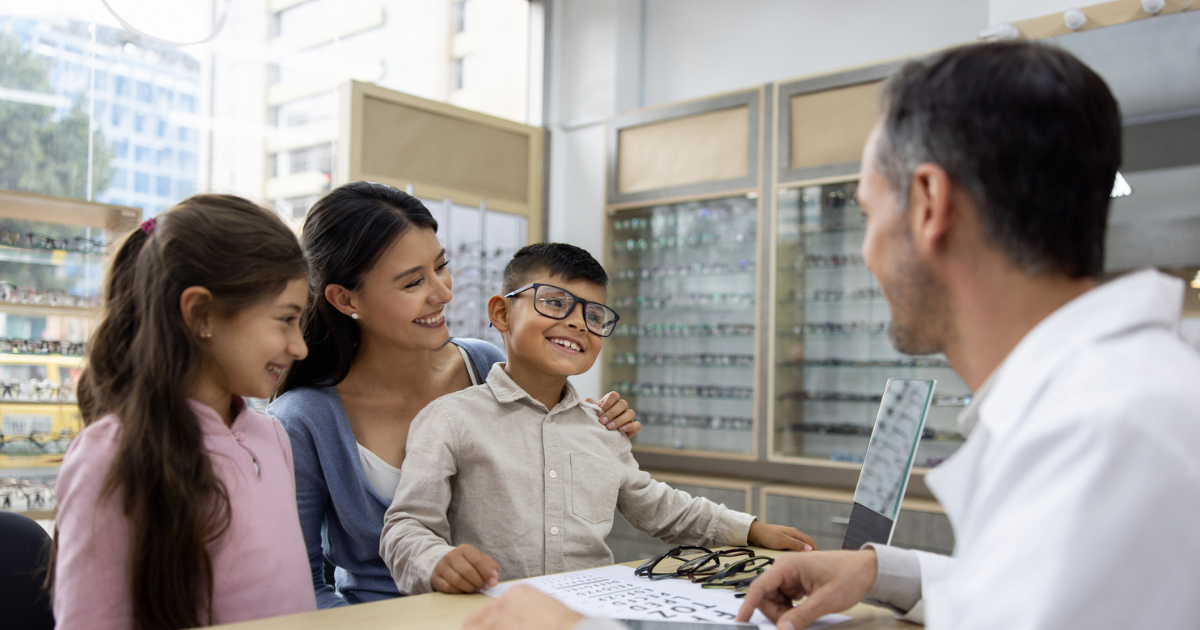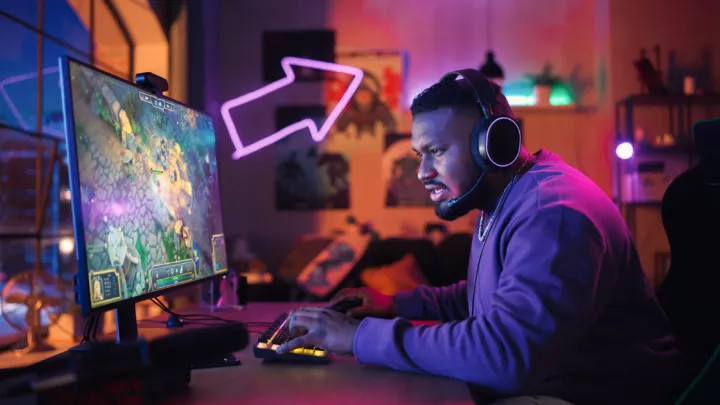How to know if your child needs glasses: Early signs and what to watch for

Some children are born with bad eyesight, but it can develop later for others. Knowing if your child has a vision problem, especially before they’re able to speak, can be challenging. When it comes to vision, recognizing the signs that your child needs glasses can make a significant difference in development and everyday life. Approximately 80% of all learning occurs visually, so poor vision can hinder a child’s development even before starting school.
But how can you tell if your child needs glasses? Nebraska Medicine optometrist Marie Schaaf, OD, shares the early signs and provides steps to take if you suspect your child has vision problems.
What are common signs a child might need glasses?
“When children struggle with their vision, they’ll often squint and/or blink excessively,” says Dr. Schaaf. “Younger children have no reference point for ‘normal vision,’ so symptoms can be more subtle or completely absent.”
Children may also tilt their heads or cover one eye to help with their vision. In school, they may sit in the front row to see better or sit closer to the television than necessary. Frequent headaches, eye rubbing due to strain and struggling in school are other possible signs that a child’s vision needs to be corrected.
What are the benefits of early detection and treatment of vision problems in children?
It’s recommended that children have a complete eye exam before starting kindergarten and then be followed annually, as a child’s vision can change rapidly. If there’s a family history of strabismus (an eye wandering in or out) or lazy eye, an eye exam should be done at age 3 or sooner if symptoms are noticed.
“Vision is still actively developing in children, so problematic issues such as lazy eye and strabismus need to be caught and treated early to avoid life-long problems,” says Dr. Schaaf. “The connections between the eyes and brain are continuing to form. If a child has high refractive error or blurry vision in one eye, the brain will favor the eye with a clear image. The part of the brain that processes images from the weak eye will not fully develop.”
Amblyopia, or lazy eye, develops primarily from birth to age 7. If untreated in childhood, the weak eye won’t see well in adulthood, even with glasses and contacts.
Promoting healthy vision
“Excessive time spent on tablets or phones will predispose children to become nearsighted or myopic, while time spent outdoors will reduce the risk,” says Dr. Schaaf. “Fellow parents, I see you – the struggle is real, but it’s important to set limits.”
In addition to being linked to dry eye and myopia, excessive screen time can also negatively affect social development and academic performance.
Making it a habit for children who wear glasses can help ensure they’re worn regularly. “Hand children their glasses first thing when they get up in the morning,” says Dr. Schaaf. “Try to make one location to set glasses when they’re taken off for showers or bedtime. Give positive reinforcement such as, ‘Wow, those are cool glasses!’ or ‘I’m so glad you can see your best.’”
All children’s lenses should be made of an impact-resistant material such as polycarbonate or Trivex and include UV coating. Blue-blocking lenses, anti-reflective coating and transition lenses are additional features you can choose from.
“Choose a frame that fits your child’s face well,” recommends Dr. Schaaf. “Ideally, give your child a choice in frame selection, as they’re more likely to wear glasses they like and feel confident in.”
By being proactive, you can help your child’s vision and overall growth while preventing further problems down the road.
Truhlsen Eye Institute
Truhlsen Eye Institute at Village Pointe Health Center







